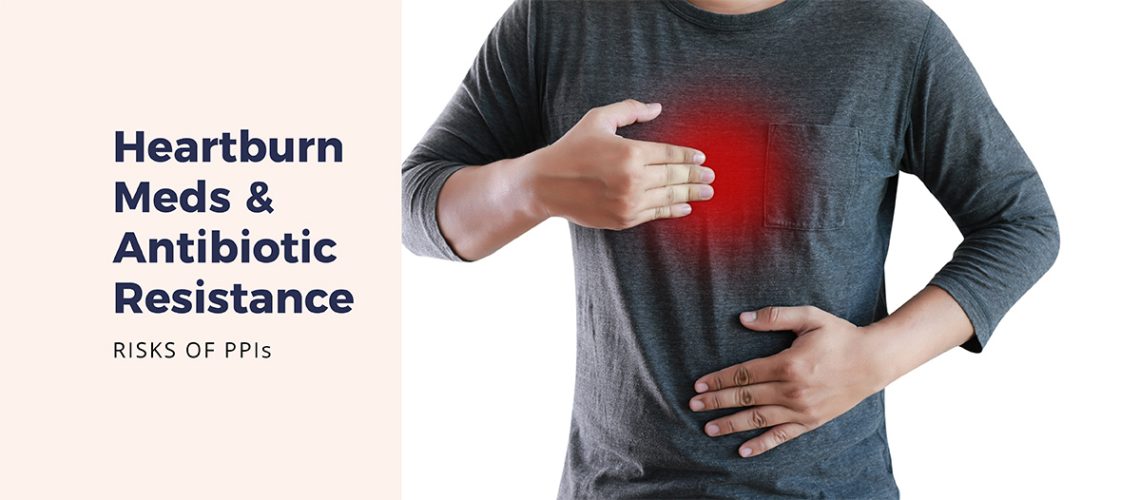Digest This
Click on the topics below to learn how probiotics can improve your digestive health, naturally.

Heartburn Meds and Antibiotic Resistance
- @drHoberman
- Diet
Heartburn Meds and Antibiotic Resistance
We remind you a lot about the real health complications associated with antibiotics. Relying on them too often can promote resistance, preventing antibiotics from working when you really need them as they should or at all.
Antibiotics aren’t the only medications people overuse that can promote drug resistance and harm your health.
Heartburn drugs — proton-pump inhibitors (PPIs) like omeprazole (Prilosec) and lansoprazole (Prevacid) — have been available over the counter (OTC) for a long time. Unfortunately, some patients take them long after their issues have been resolved. (Even years!)
In the past, we’ve told you about the use of PPIs creating unhealthy imbalances of gut bacteria that can leave you vulnerable to very serious Clostridium difficile (C. diff) superbugs infections in just 28 days.
A more recent study conducted by a European medical team added another layer of caution when taking PPIs.
More PPI Risks
Researchers from the University of Amsterdam Medical Centers investigated how the daily use of PPIs in a hospital setting increased the risk of acquiring multidrug-resistant bacteria in a study appearing in JAMA Network Open.
To do this, doctors monitored the health of more than 2,200 patients, including 374 who took PPIs, for the presence of two multidrug-resistant bacterial species (ESBL and carbapenemase-producing Enterobacterales) over a two-year period.
Patients who took PPIs once a day increased their risks of acquiring both species by nearly 50 percent and slightly more when PPIs were taken twice a day.
Why are PPIs could be a problem: Scientists believe the primary function of these drugs — suppressing the production of gastric acid in the stomach — creates an environment in which harmful bacteria have better chances of survival and causing harm.
Better Ways To Handle Heartburn
A greater vulnerability to multidrug-resistant bacteria isn’t the only reason to be cautious about PPIs.
A 2019 study featured in The BMJ concluded their use was associated with a 17 percent rise in a patient’s risk of death compared to taking H2 blockers like cimetidine (Tagamet) or ranitidine (Zantac).
Here are four simple steps you can take right now that don’t involve a drug to ease your heartburn.
- If you’ve put on some extra COVID weight, it’s time to clean up your diet and make some time for exercise.
- Eat smaller meals and give yourself at least a two-hour break between your evening meal and bedtime.
- When you’re in bed, make sure you elevate your pillow slightly to avoid a nighttime surge of stomach acid.
- Protect the healthy balance of bacteria in your gut and lessen your risks of multidrug-resistant bacteria by taking a probiotic with multiple strains of beneficial bacteria like EndoMune Advanced Probiotic.
References
There Is An Endomune Probiotic For Every Lifestyle
-
EndoMune Metabolic Rescue
$44.95 -
EndoMune Advanced Probiotic
$42.95 -
EndoMune Companion Pack
$112.93









